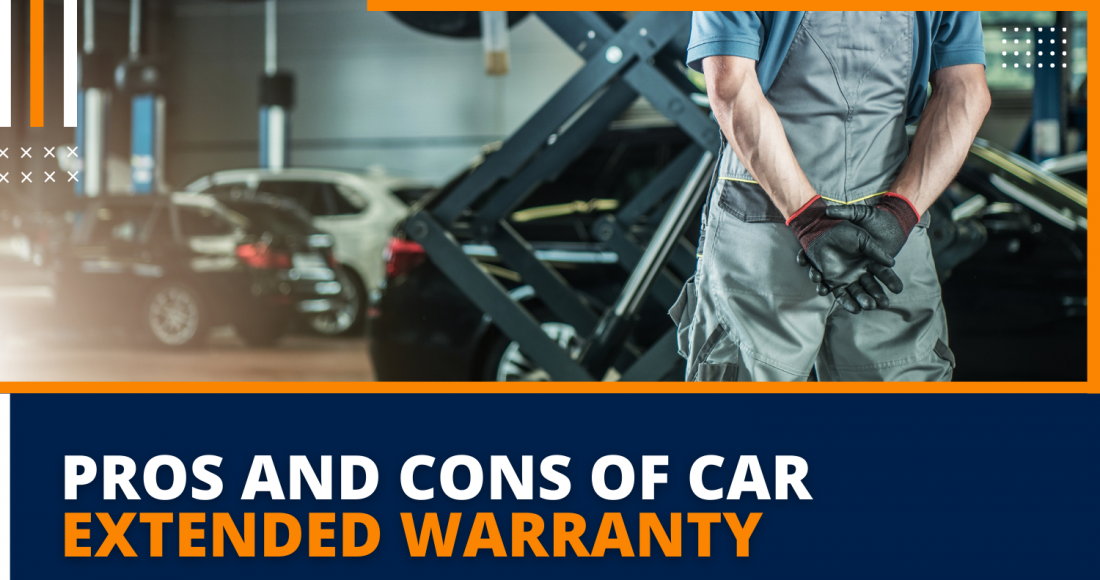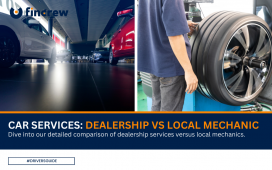The cost of extended warranties can be just as burdensome as car repairs. Take a look at the pros and cons of extended car warranties for your vehicle before choosing one.

What Is An Extended Warranty?
The likelihood of certain parts wearing out and stopping working increases as vehicles age. An extended warranty, sometimes called a vehicle service contract, can protect your used car from potentially costly repairs after the factory warranty expires. When a vehicle breaks down due to normal wear and tear, an extended warranty covers the cost of parts and labor for repairs. Extended warranties work similarly to the manufacturer’s warranty. The insurance does not cover misuse, neglect, or accident expenses.
The Pros Of Extended Car Warranties
Pro: Extended Warranties Can Be Tailored To Meet Specific Needs
Since the original warranties provided by auto manufacturers differ in terms of mileage and time limits, companies that offer extended warranties have a greater variety of products and services than in the past. The third-party warranty provider can only extend the shorter warranty coverage if, for example, a vehicle has an extended powertrain warranty but a short bumper-to-bumper warranty. Providing 24-hour roadside assistance to new vehicles without manufacturer coverage is another example.
Pro: Extended Warranties Cover Expensive Repairs
In today’s vehicles, expensive technology, wiring, and computerized equipment are more complex than ever. In cases like these, diagnosing, isolating, and repairing the problem can cost money. As new cars and trucks are more mechanically reliable than ever before, a vehicle’s technological systems make it necessary to obtain an extended warranty. Before purchasing a warranty, request a list of exclusions from the warranty provider and ensure that the contract includes these technology features and other significant vehicle components.
Pro: Dealers Handle All Paperwork And Payments
Dealer-sponsored extended warranties tend to be more expensive. Still, in exchange for the extra cost, the dealer handles all the paperwork, and the auto manufacturer pays directly to the dealer for services rendered. Also, these warranties are usually backed by the manufacturer, allowing the car owner to go to any dealership with the same brand anywhere in the country to get the vehicle fixed, whereas other third-party warranties might include limitations.
The Cons Of Extended Car Warranties
Con: Extended Car Warranties Can Be Expensive
An extended warranty is a bet. You have to spend more on repairs than the warranty cost in most cases. The warranty provider is also betting on the outcome. The warranty provider believes you will not need to spend more on repairs than the warranty covers. Since there are so many extended warranty providers, the odds are not with you. However, negotiate an extended warranty’s price most of the time.
Con: Extended Warranties Don’t Cover Everything.
In some cases, consumers buy an extended warranty plan without reading its details and discover later that their extended car warranty does not cover a needed repair. You should receive a list of exclusions on your warranty plan from a reputable provider. Be sure to read the list carefully before purchasing an extended warranty.
Final Thought
You may decide that an extended car warranty is proper for you after considering the pros and cons of extended car warranties. Researching and comparing prices are the first steps to finding the appropriate deposit for you. It would help if you shopped around for the best price and coverage on your car from top third-party warranty providers.





